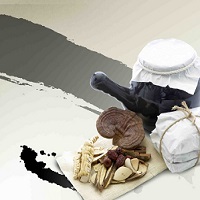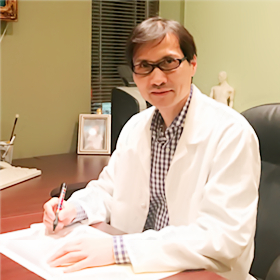Chinese herbal medicine

Chinese herbal medicine (CHM) is one of the oldest and most commonly used medical procedures in the world. Besides conventional medicine, TCM is the only alternative medicine which has established a unique medical system consisting of its own medical principles, diagnostic standards and related treatments. It uses Chinese medicinal herbs to alter disease process and the state of mind as well as to enhance recuperative power and capacity for pleasure, work and creativity. It frequently integrates acupuncture, diet, exercise and meditation in its treatment plan.
Principles of traditional Chinese medicine
According to the principles of traditional Chinese medicine (TCM), health remains optimal when two opposing forces called Yin and Yang in the body is dynamically balanced and its energy is freely flowing in normal direction. This is referred as balance of Yin and Yang, the classic Taoist concept of universe. In an optimal state, Yin and Yang in all their forms are perfectly balanced in every part of the body. However, external and internal factors can destroy this balance, leading to dysfunction and disease. Chinese medical diagnosis intends to identify a Pattern of imbalance the body caused by these factors, and a unique treatment plan including herbs, acupuncture, manipulation, will be recommended.
Etiology and diagnosis of traditional Chinese medicine
Regarding etiology of a health problem, TCM takes into account many factors, such as bacteria and virus invasion,
disharmony of internal organs, emotional changes, abnormal lifestyle, climate and environmental changes, while allopathic medicine pays much less attention to those factors except infections. One of the great breakthroughs in medical science was the discovery of antibiotic Penicillin, which is able to kill wide-range strains of bacteria. Except infectious diseases, allopathic medicine seems to
know little about the etiology of most of human diseases. There are increasing scientific evidences supporting the current hypothesis that our lifestyle such as diet, exercise, work stress, habit,
etc., environmental and climate abnormality can lead to health problems. Obviously, the Chinese medical
medicine has paid much attention to these factors for many thousands of years.
As to diagnosis, TCM applies a very complicated holistic healing approach,
which considers all the factors related to health condition and concludes a
Pattern (similar to syndrome) of imbalance of the body. Interestingly, Chinese
medicine may have different diagnosis to the single Western condition or have
same diagnosis to different Western diseases. It is no doubt that conventional medicine
makes much better diagnosis by detecting mechanical, biological and biochemical changes in
the body. The big challenge the allopathic medicine faces is the understanding of pre-disease condition that may not show biological abnormality with modern technology.
Difference between Chinese herbal medicine and Western herbal medicine
Traditional Chinese Herbal Medicine differs in several significant ways from traditional Western Herbal Medicine (European and Modern herbal medicine). The most obvious difference is that both herbal medicines practiced on different theories and principles; second, the Western herbal tradition prescribes single herb, while traditional Chinese herbal medicine makes exclusive use of herbal combination. Herbal combination called formula is created with consideration of efficacy, dosage, herbal interaction and reduction of side effects.
FAQ on Chinese herbal medicine
- What can Chinese herbal Medicine treat?
- Are Chinese herbs safe to be used?
- How do I take Chinese herbs?
- How much does it cost?
- What is difference between allopathic medicine and Traditional Chinese Medicine?


